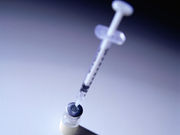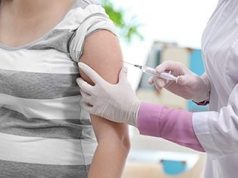First time vaccine has shown any protection against gonorrhea, researchers report
TUESDAY, July 11, 2017 (HealthDay News) — A vaccine for gonorrhea may be one step closer to reality, according to a report published online July 10 in The Lancet.
The MeNZB vaccine was developed to control a meningitis epidemic in New Zealand from 2004 to 2006 and is no longer available. But the antigens in the vaccine thought to provide the immune response to gonorrhea are included in the more recently developed 4CMenB vaccine, which is available in many countries, lead researcher Helen Petousis-Harris, Ph.D., a senior lecturer at the University of Auckland in New Zealand, told HealthDay.
Petousis-Harris and colleagues reviewed information on about one million people who received the MeNZB vaccine in a mass immunization program. The researchers collected data on people aged 15 to 30 who had been diagnosed with gonorrhea or chlamydia, or both. All were eligible to receive the MeNZB vaccine. The data came from 11 clinics in New Zealand, and 14,730 people were included in the analysis (1,241 had gonorrhea, 12,487 had chlamydia, and 1,002 had both).
The researchers found that people who had been vaccinated with the MeNZB vaccine were less likely to have gonorrhea than those who weren’t (41 versus 51 percent). After taking into account factors such as race, sex, socioeconomics, and geographical area, the researchers calculated that vaccination was associated with a 31 percent reduction in risk.
The study was funded by GSK Vaccines.
Abstract
Full Text (subscription or payment may be required)
Editorial (subscription or payment may be required)
Copyright © 2017 HealthDay. All rights reserved.








